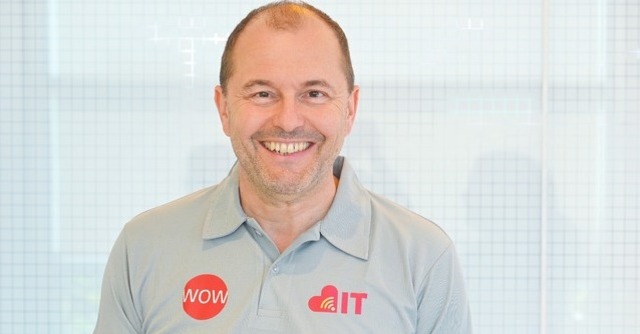
Cautious on gen AI but excited about innovation potential: DHL Express CIO


The global logistics industry has increasingly embraced data analytics, artificial intelligence (AI) and blockchain as part of its suite of operational and client-facing solution. Since the advent of ChatGPT and generative AI entering the mainstream fold, logistics operators have also begun exploring applications of generative AI, for their customers and partners. In an interaction with Mint, Dirk Olufs, chief information officer of Germany-headquartered global logistics firm DHL Express, spoke about the company's tech-driven product development roadmap, the use of AI in DHL's product stack, plans to use generative AI, and India's importance among all of its global markets. Edited excerpts:
How does DHL handle operations at scale within India? Do emerging technologies play a role in it?
It is not only a challenge in India, as we operate in 230 countries. The underlying infrastructure is quite different depending on geography. If you are operating in Europe and the US you have high-end high tech. In developing markets the infrastructure is not there yet. It's a challenge to accommodate these various infrastructure setups. What we have done is set up a protocol called 100% uptime where we basically invest in technical solutions in business continuity plans (BCP) to ensure our systems operate 24x7 in all countries.

India is helping us with local plans, how to set up local networks and what are the failover solutions and all of that. In India, we have a good setup with world-class technologies, at par with global standards.
How is India different from most other countries where you have operations? What are your expansion plans here?
India is quite unique. Yes, we have our DHL Express operations and other operations here. But, we use India as one of the three major locations where we create solutions for the world. It is done out of our shared IT service center in Chennai. There is huge demand, so we have great plans to work with local universities to ensure we get the best talents. India in that sense is contributing a lot to DHL Express’ success and also to our global application landscape.

The demand from customers in India is not any different from the rest of the world. Interestingly, demand from authorities in providing data for custom clearance has grown a lot in the last few years.
In terms of hiring, our data and shared services have seen double digit growth and that will continue to take place.
How are you using AI, and do you have any immediate plans to deploy generative AI solutions?

ML/AI is not a new topic for us. Optimizing processes, optimizing cut off time, optimizing solutions for customers cannot be done without ML, big data and analytics. We have multiple solutions in play which is actually helping us track and secure shipment delivery across the world.
Generative AI has been hyped a lot since November and everyone is seeing its transformational and innovative potential. Yes, we are looking into that for customer communication and chatbots. We are looking at not just OpenAI but other tools as well and creating our use cases.
There are many things that we can consider as solutions. But on the other side we are also being a little careful because it creates new content. We need to understand its risks. We have a cautious view on generative AI but we are excited about its innovation potential.

DHL had implemented blockchain in its operations. Do you plan to expand blockchain adoption?
We created our one blockchain not only at DHL Express but also for suppliers, customers and custom authorities. The results are mixed. It is more niche than anything else and we are still exploring it. Over the last 3-4 years we have mastered a lot of the technology and network of suppliers and customers who were part of the journey. We can now speak with confidence about the value and limitation of blockchain in our industry.
How are you dealing with the growing cyber threats and data breaches?

Every CIO on the planet is having the same nightmare. We are attacked even though not massively more attacked. All the AI and ML that we talked about could be sued against us. So what we are using is permanently investing in the latest technologies. We are getting a lot of information through frequent scanning. It's part of our development learning so we are safely and securely developing our applications. We are also educating our users to not click on every link. Everyday people are getting phishing messages.
DHL was reported to be one of the most imitated brands in phishing campaigns. How are you dealing with this issue?
It was a surprise to us. Though it's not a measure of attacks against us but against customers, it is a concern for sure. We are working with authorities and police at all levels to identify and shut down such sites. We have a really good cybersecurity and response team that is working on that. We are offering bounty programs for customers and people to give us insights and help us prevent such malicious activities.

